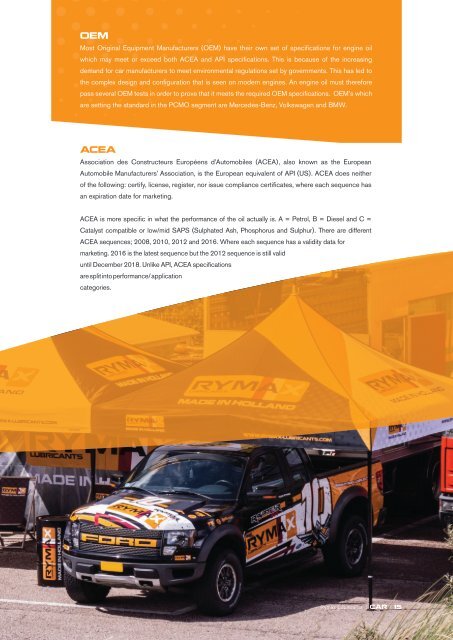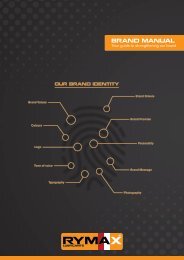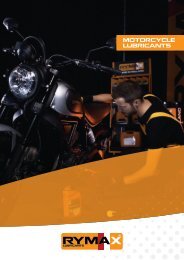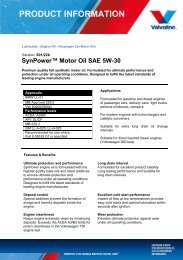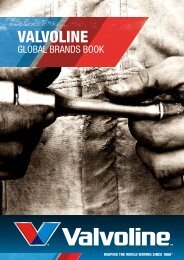Rymax_Brochure_Passenger_Car
New Rymax Lubricants Passenger Car brochures (2018)
New Rymax Lubricants Passenger Car brochures (2018)
Create successful ePaper yourself
Turn your PDF publications into a flip-book with our unique Google optimized e-Paper software.
OEM<br />
Most Original Equipment Manufacturers (OEM) have their own set of specifications for engine oil<br />
which may meet or exceed both ACEA and API specifications. This is because of the increasing<br />
demand for car manufacturers to meet environmental regulations set by governments. This has led to<br />
the complex design and configuration that is seen on modern engines. An engine oil must therefore<br />
pass several OEM tests in order to prove that it meets the required OEM specifications. OEM’s which<br />
are setting the standard in the PCMO segment are Mercedes-Benz, Volkswagen and BMW.<br />
ACEA<br />
Association des Constructeurs Européens d’Automobiles (ACEA), also known as the European<br />
Automobile Manufacturers’ Association, is the European equivalent of API (US). ACEA does neither<br />
of the following: certify, license, register, nor issue compliance certificates, where each sequence has<br />
an expiration date for marketing.<br />
ACEA is more specific in what the performance of the oil actually is. A = Petrol, B = Diesel and C =<br />
Catalyst compatible or low/mid SAPS (Sulphated Ash, Phosphorus and Sulphur). There are different<br />
ACEA sequences; 2008, 2010, 2012 and 2016. Where each sequence has a validity data for<br />
marketing. 2016 is the latest sequence but the 2012 sequence is still valid<br />
until December 2018. Unlike API, ACEA specifications<br />
are split into performance/ application<br />
categories.<br />
<strong>Rymax</strong> Lubricants | CAR | 15


